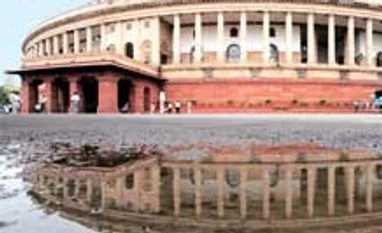A bill to replace the DGCA by a new regulator for the Indian aviation sector, the Civil Aviation Authority (CAA), was introduced in the Lok Sabha today.
The Civil Aviation Authority of India Bill 2013, which was introduced by Minister of State for Civil Aviation K C Venugopal, would provide the CAA full operational and financial autonomy to regulate all issues concerning civil aviation safety and protect the interests of consumers in a fast-changing aviation scenario.
It would be empowered to levy fees and charges under the Aircraft Act 1934 and undertake its own recruitment of professionals, which is currently carried by the UPSC for the Directorate General of Civil Aviation (DGCA).
The ICAO and FAA had made observations relating to "severe deficiencies" in the DGCA set-up, including 40% of its posts lying vacant and problems in creating posts and hiring of personnel, the statement of objects and reasons of the bill said.
In view of the situation, it was decided to establish a fully autonomous CAA in line with aviation regulators in various other countries.
On replacing the DGCA, the CAA would administer and regulate civil aviation safety, and manage safety oversight over air transport operators, air service navigation operators and operators of other civil aviation facilities.
Issues relating to consumer protection and environment regulations in civil aviation sector would also be addressed by the CAA, which would have a Chairperson, a Director General and 7-9 members, including five whole-time members.
The Civil Aviation Authority of India Bill 2013, which was introduced by Minister of State for Civil Aviation K C Venugopal, would provide the CAA full operational and financial autonomy to regulate all issues concerning civil aviation safety and protect the interests of consumers in a fast-changing aviation scenario.
It would be empowered to levy fees and charges under the Aircraft Act 1934 and undertake its own recruitment of professionals, which is currently carried by the UPSC for the Directorate General of Civil Aviation (DGCA).
More From This Section
The bill was brought by the government after the UN-body International Civil Aviation Organisation (ICAO) and the US regulator Federal Aviation Administration (FAA) carried out audits of the DGCA last year and pointed towards the "unsatisfactory situation" faced by it.
The ICAO and FAA had made observations relating to "severe deficiencies" in the DGCA set-up, including 40% of its posts lying vacant and problems in creating posts and hiring of personnel, the statement of objects and reasons of the bill said.
In view of the situation, it was decided to establish a fully autonomous CAA in line with aviation regulators in various other countries.
On replacing the DGCA, the CAA would administer and regulate civil aviation safety, and manage safety oversight over air transport operators, air service navigation operators and operators of other civil aviation facilities.
Issues relating to consumer protection and environment regulations in civil aviation sector would also be addressed by the CAA, which would have a Chairperson, a Director General and 7-9 members, including five whole-time members.
)